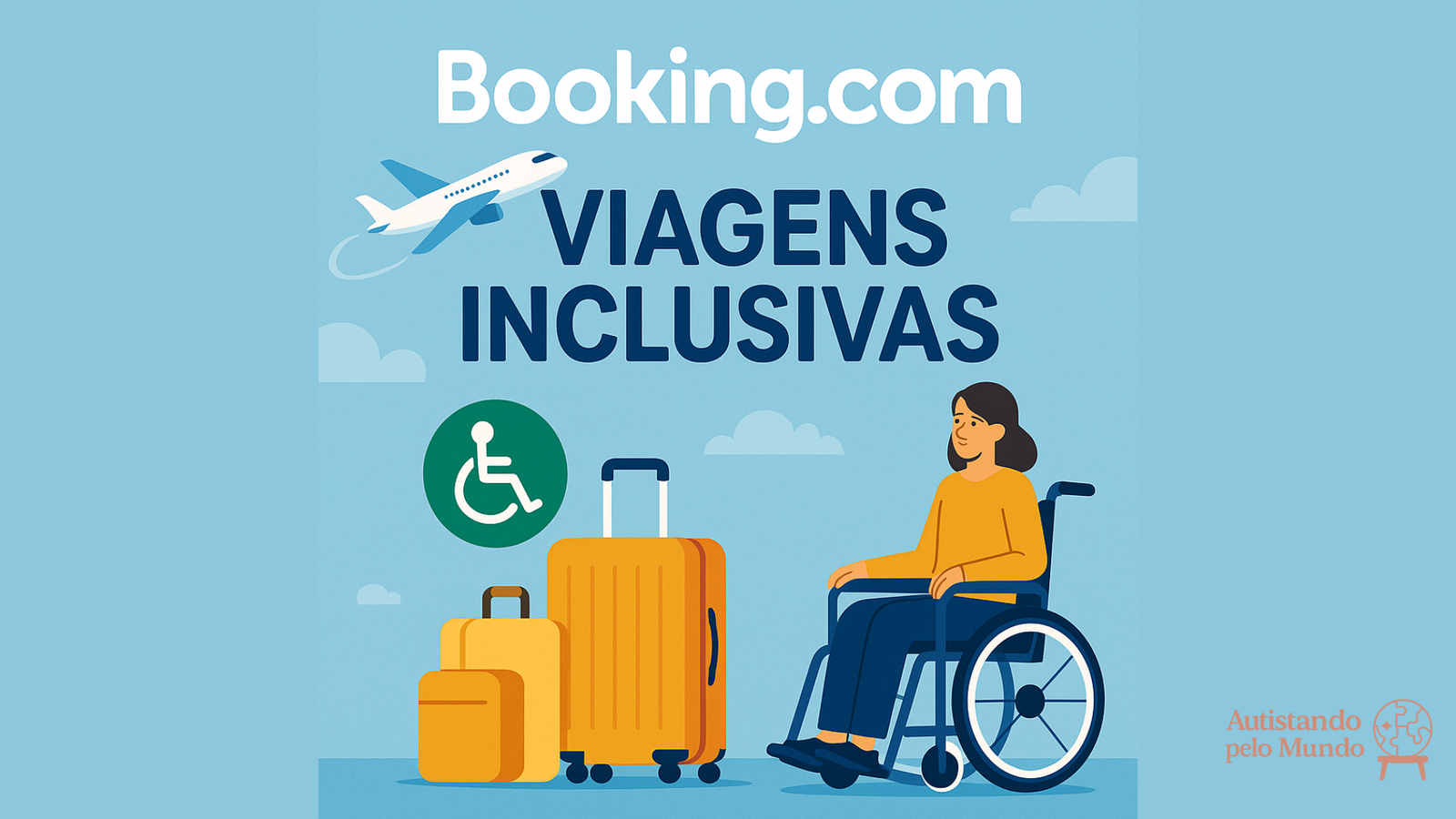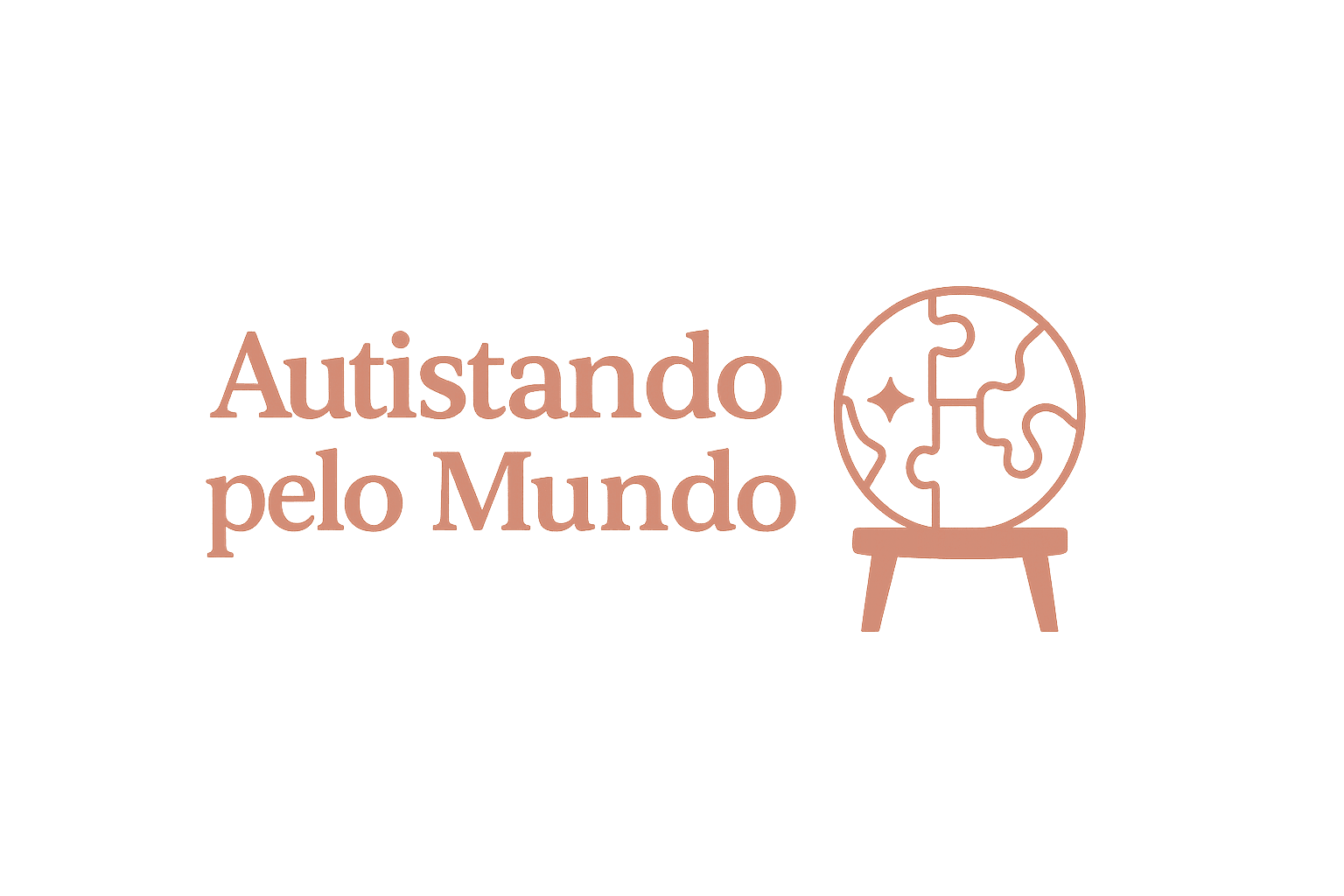Does Booking.com have inclusion initiatives? We assess what already exists and what can be improved.
THE Booking.com is one of the world's most well-known accommodation platforms, used by millions of travelers every day. But is the platform prepared to also serve people with disabilities and families with autistic children? In this post, we evaluate the inclusion features already in place, what can still be improved, and why digital accessibility is so important in today's tourism industry.
🌐 Why does digital accessibility matter in tourism?
With the rise of family travel and increased awareness of inclusion, more and more people are seeking accessible platforms to plan their itineraries. This includes families with autistic children and people with reduced mobility, low vision, hearing impairment, or neurodivergence.
Ensuring that a platform like Booking.com is inclusive isn't just a matter of social responsibility—it's also a way to improve the experience for all users and promote fairer, more welcoming tourism.
✅ What Booking.com already offers in terms of inclusion
When browsing the platform, you can find some initiatives focused on accessibility, such as:
- 🔎 Accommodation search filters with physical accessibility, such as:
- Adapted bathroom
- Shower with grab bars
- Lower sink
- Wheelchair accessibility
- 📱 Partial compatibility with screen readers
- 📸 Use of alternative text (alt text) in some images
- 🏨 Highlighting properties that adopt inclusive practices
These features already represent a significant advance, especially for those seeking adapted accommodation. However, the experience is still not 100% inclusive.
🚧 What can still be improved
Despite the progress, Booking.com still has a long way to go when it comes to inclusion. Some areas we identified as missing or underdeveloped:
- 🎧 Lack of audio description for people with visual impairments
- ⌨️ Limited keyboard navigation in some sections of the website
- 🧠 Lack of clear information about sensory environments (important for autistic people)
- 🔇 Lack of resources for the hearing impaired, such as videos with subtitles or a sign language interpreter
Furthermore, accessibility signage on properties is still largely focused on physical aspects. It would be beneficial to include information on sensory accessibility, alternative communication, and staff training.
📬 Contact Booking and partnership proposal
We recently contacted Booking.com by email to better understand their initiatives and suggest a possible partnership to promote inclusive tourism. To date, we haven't received an official response, but we remain eagerly awaiting their response.
Our goal is to collaborate with major platforms so that all travelers, including those with disabilities or neurodiversity, have a safer, more welcoming, and complete experience.
💡 Conclusion
THE Booking.com already has some accessibility initiatives, especially regarding the physical accessibility of accommodations. However, a more comprehensive approach to the needs of people with visual, hearing, or cognitive impairments, or families with autistic children, is still lacking.
We hope that the platform will soon advance in areas such as audio description, more inclusive navigation, and sensory information, truly becoming a benchmark in accessible tourism.
Meanwhile, we continue to monitor and encourage initiatives that make tourism increasingly inclusive for everyone.
👉 Meet our partners and how you can support inclusive tourism

📣 Share your inclusion experience!
Have you had a positive accessibility experience at a park, hotel, restaurant, or other location? Your story could help other families plan more inclusive trips.
Send your report and it may appear here on the website, in our section Reviews or General Tips!

Don't miss any tips!
Sign up and receive our inclusive tourism experiences directly to your email.
Want to make tourism more inclusive?
We are open to partnerships with accessible spaces, inclusive inns and projects that value diversity.
Get in touch and let's talk!